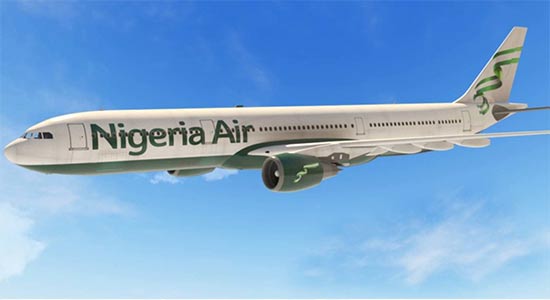
No fewer than 131 airlines registered to operate in Nigeria’s domestic airspace under scheduled and non-scheduled flight have gone into extinction largely due to hostile operating environment as well as bad management.
Scheduled flights are those which get their schedule approved by the aviation regulator in advance for a period running into months. Non-scheduled flights are charter flights that are operated as per requirement.
Findings by Vanguard Aviation World showed that before the establishment of the Nigerian Civil Aviation Authority, NCAA, in 2000, over 52 airlines operating in the country had already gone into extinction.
The Authority effectively commenced operations on 1st January, 2000, and between then and 2022, additional 79 airlines went under, bringing the total number of collapsed airlines in the country to 131.
Recall that, the NCAA was established by decree 49 of 1999, with among others, the statutory responsibilities of ensuring regulating, monitoring and promotion of the safety, security, economic and reliability of air navigation oversight in line with the International Civil Aviation Organisation (ICAO) standard and recommended practices (SARPs).
A breakdown of the nation’s aviation sector comprises 20 airports and many regulated airstrips and heliports; 23 active domestic airlines; 554 licensed pilots; 913 licensed engineers and 1700 cabin personnel.
Nigeria being Africa’s most populous country is an important destination for over 22 foreign carriers. Nigeria currently has Bilateral Air Services Agreements with over 78 countries.
From Nigeria, air travellers can fly directly to many of the world’s business centres such as London, Paris, Frankfurt, New York, Johannesburg, China, Atlanta, Amsterdam, Dubai, and Jeddah, amongst others.
The death nails
The findings show that several factors led to the shutdown of these airlines ranging from re-capitalization mandate introduced by the federal government, misappropriation of funds, mismanagement, poor business plans, and lack of proper structures, amongst others.
The federal government had set a deadline of 30 April 2007 for all airlines operating in the country to re-capitalise or be grounded, in an effort to ensure better services and safety, about seven airlines failed to meet the deadline.
Amongst them are ADC Airlines, Fresh Air, Sosoliso Airlines, Albarka Air, Chrome Air Service, Dasab Airlines and Space World Airline.
One of them, ADC Airlines, which became operational on January 01, 1991 and listed on the Nigerian Stock Exchange in 1994, had its entire fleet grounded indefinitely, and license revoked by the federal government for not being able to recapitalize in 2006.
The airline had tried to restart operations in 2002, with a recapitalisation and acquisition of additional aircrafts which operated Lagos-Calabar scheduled flight, but a crash of one of the newly acquired aircrafts in 2006 which killed 96 passengers nailed the operations of the airline.
The Afrijet airline started operations in 1998 but they stopped in 2009 even after meeting the recapitalisation mandate the NCAA. The airline was saddled with management issues as well as bad loans.
Sosoliso airline started operations in July 2000 on Enugu, Port Harcourt, Abuja, Owerri and Lagos route.
But its Flight 1145 from Abuja crash-landed at Port Harcourt International Airport in December 2005, knocking off the airline from the aviation industry. Sosoliso, which was among the seven airlines that failed to meet the recapitalisation deadline, ceased operation in 2006.
The national carrier, Nigeria Airways, began operations in 1971, but due to gross mismanagement and government interference the airline ceased operation in 2003.
Med-View Airlines founded in 2007 as a charter airline mainly operating Hajj flights, and has offered domestic passenger services since November 2012. It expanded into regional and long-haul scheduled passenger routes.
But the airline began having financial problems and was forced to lay off most of its staff from 2017.
In April 2018, Medview Airline suspended international flight operations due to debts and decreased aircraft, and by August, 2019 Medview reportedly shutdown all operations as its only operating aircraft went out of service.
NCAA position
While commenting on some common factors that led to the collapse of the airlines, the spokesperson for NCAA, Sam Adurogboye, in an exclusive chat with Vanguard Aviation World noted that the economics of managing airlines globally is quite tasking and very challenging, and not peculiar to Nigeria alone.
“Among the several reasons why they failed was as a result of lack of corporate governance, that is, having the right person doing the job while understanding the need for due process and carefully executing it.
“Also, they believe in working independently instead of aligning with internal or external support. By now, Nigeria’s airlines should have formed alliances within themselves, as well as with mega carriers but that is not the case.
“An airline alliance is an aviation industry arrangement between two or more airlines agreeing to cooperate on a substantial level. None of these mega carriers does it alone, they all form alliances. There are three major airline alliances, we have SkyTeam, Star Alliance and Oneworld, and each has different partner airlines.”


